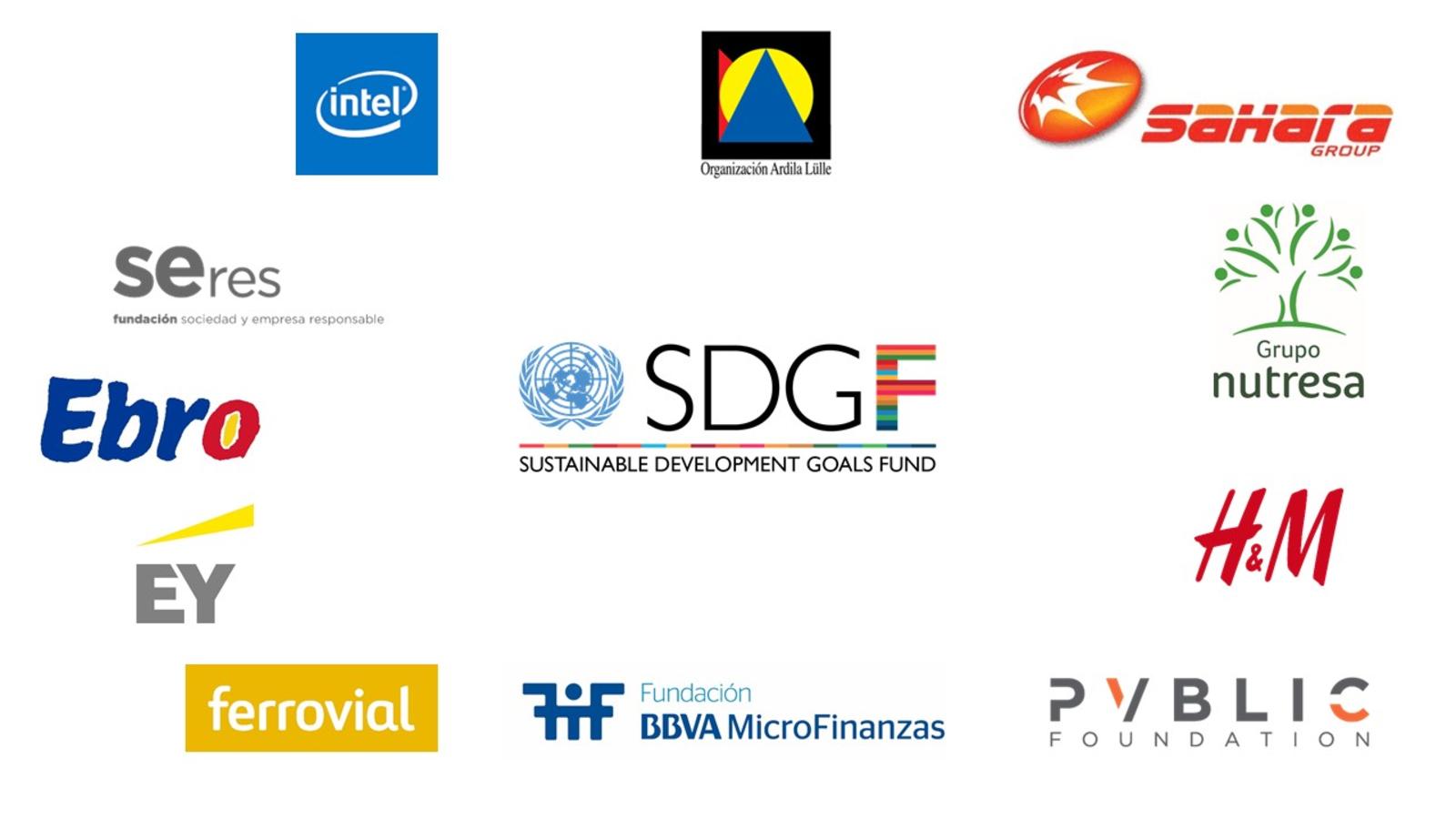In the 2030 Agenda for Sustainable Development, businesses are playing an integral role in achieving sustainable development on the ground. A key question is how can private and public sectors better contribute to development processes.
Each company – large and small – is making incredible contributions towards shared economic, social, and environmental progress. This is being achieved through core business operations and value chains, social investments, and advocacy efforts. The SDG Fund is addressing the challenge of how businesses can become more involved in joint development initiatives with governments, civil society, and UN Agencies, such as those of the SDG-F’s work in the ground in the form of joint programmes.
Business leaders around the world
To better align public-private partnerships for sustainable development, the SDG Fund has established a Private Sector Advisory Group, formed by business leaders of major companies from various industries worldwide. These leaders are helping the SDG Fund to build a roadmap for how public-private alliances can provide large-scale solutions for achieving the new SDGs. Its aim is to collaborate and discuss practical solutions pertaining to the common challenges of contemporary sustainability.
The Advisory Group is committed to identifying areas of common interest and deciphering the best methods of UN-Private Sector engagement, as well as offering suggestions for how to work more effectively with one another at the country level.
Purpose of the SDG-F Private Sector Advisory Group
The SDG-F Private Sector Advisory Group seeks to provide the SDG-F Secretariat with guidance and strategic support to achieve better development results in coordination with the private sector.
It identifies areas of common interest and promotes the sustainability of global public goods with the primary objective of establishing productive public-private partnerships.
It also serves as a dialogue launchpad between the private sector and the SDG-F partners in order to locate areas of collaboration and synergies, both at the conceptual and programme level.
Composition
The members of the SDG Fund advisory group met for first time in April 2015.
- BBVA Microfinance Foundation, Financial Services, mfbbva.org/en
- Ebro Foods, Food, www.ebrofoods.es/en
- EY, Consulting Services, www.ey.com
- Emery Oleochemicals, Renewable Chemicals, www.emeryoleo.com
- Ferrovial, Infrastructure and Services, www.ferrovial.com/en
- Grupo Nutresa, Food and Beverage, www.gruponutresa.com/en
- H&M, Clothing, www.hm.com
- Intel, Information and Communications Technology, www.intel.com
- Organización Ardila Lülle, Conglomerate, www.oal.com.co
- Pvblic Foundation, Media, www.pvblic.org
- Sahara Group, Oil and Energy, www.sahara-group.com
- Seres Foundation, Corporate Social Responsibility, www.fundacionseres.org

Expected contributions from the SDG Fund Advisory Group
- Business model: assistance in developing models.
- Capacity building (such as industry-specific training for SDG-F Joint Programme partners).
- Dialogue: engaging in dialogue with public and private stakeholders to provide alternative viewpoints and engagement opportunities to improve strategic action and decision-making processes.
- Research and Knowledge Sharing.
- Collaboration with academic world to provide new ideas for joint solutions
- Resources and infrastructure: mobilizing and investing economic, natural and/or human capital invested in joint public-private ventures which promote inclusive economic growth.
- Resource supply: including financial, human and/or natural resources, and infrastructure to either support current initiatives or assist in developing new ones.
- Advocacy and Awareness Raising: advocating for private sector involvement in development cooperation.
- Network and partnering assistance.
- Consultancy: providing expert consultancy services to assist partners in the formulation of their goals and strategies incorporating the private sector.
- Policy analysis and advice: engaging with government bodies to provide effective country-specific advice on enacting policy reform towards business and development outcomes.
- Innovation in technology through product development, addressing a development challenge. This may involve taking ownership over and piloting a programme for the SDG-F, i.e. launching the knowledge-management platforms or match-making service.

